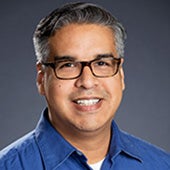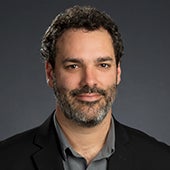
Doctoral Programs
The College of Education at The University of Texas at Austin is a part of a tier-one research institution that is pushing the boundaries in the fields of education, policy, psychology and health behavior.
Our highly ranked doctoral programs provide research-driven experiences that pair theory and practice in collaborative environments in education, policy and health. Through specialized coursework and critical scholarship, our Doctor of Philosophy (Ph.D.) and Doctor of Education (Ed.D.) graduates are well positioned to go out and change the world. Our industry-leading faculty work closely with our doctoral students, nurturing them as they conduct cutting-edge research and preparing them to become policy makers, researchers, professors and leaders who advance education and health and shape its future in the U.S. and beyond.

Doctor of Philosophy (Ph.D.)
Autism and Developmental Disabilities
The Autism and Developmental Disabilities (A&DD) Doctoral Program provides students with cutting-edge training for conducting research. Students engage in hands-on practice with individuals with autism and developmental disabilities. In this concentration, we strive to provide students with teaching, research and clinical training experiences that will prepare them for careers in academia and/or clinical-based settings.
Bilingual/Bicultural Education
Become an expert in important topics related to the field of bilingual and bicultural education. Students in this program will become advocates for the importance of bilingual education for teachers, administrators and families through coursework and research alongside faculty.
Counseling Psychology
Our doctoral program in counseling psychology is scientist-practitioner based, preparing Ph.D. psychologists to work with problems of human behavior in a range of social processes and systems.
Cultural Studies in Education
Focus your studies on the importance of cultural and social diversity in education. The CSE program takes an interdisciplinary approach to researching topics such as the history, philosophy, and politics of education, urban schooling, critical pedagogy and globalization.
Early Childhood Education
Improve early childhood education and development by researching and learning about early childhood policy, pedagogy, curriculum and training for children in preschool through 3rd grade. This program prepares students to address global, national and local issues facing young children and their communities in classrooms, schools and beyond.
Early Childhood Intervention/Early Childhood Special Education
The Early Childhood Intervention/Early Childhood Special Education (ECI/ECSE) Ph.D. degree features coursework and intensive mentoring from scholars that conduct cutting-edge clinical and translational research to improve the lives of young children with disabilities and their families. The goal of the program is to prepare the next generation of scholars and future leaders to conduct high-quality research that advances the field of early childhood special education.
Educational Policy and Planning
Through vigorous coursework and innovative research, students examine important topics and issues in public schools to better inform policies that benefit all students.
Equity and Diversity in Special Education (EDSE)
Focus on the unique needs of individuals with disabilities and their families from diverse socio-cultural and linguistic communities. Students will become prepared to work in higher education, leadership roles in schools, research roles in education and as critical thought leaders in multicultural special education.
Exercise Physiology
Study exercise physiology using an integrative approach to discover and disseminate basic, applied and clinical knowledge regarding the metabolic, cardiovascular, cardiopulmonary and autonomic nervous system responses to exercise and physical inactivity in health, aging and diabetes. Our graduate students conduct a focused line of research by working with faculty mentors. Their cooperative work builds a foundation of knowledge critical for the advancement of the field.
Health Behavior and Health Education
Gain the necessary experience for a research, academic or applied career in health promotion, health education and public health. Our graduate programs provide a multidisciplinary perspective on health and well-being across the lifespan.
Higher Education Leadership and Policy
The PHELP Ph.D. program prepares students in the scholarly study of higher education. Through research across departments within the university, students gain first-hand experience into effective applications, policies and leadership skills used in academia by faculty and staff. Students also learn how universities function as advocates for social justice and support increasingly diverse student populations. This program starts in the fall semester.
Human Development, Culture and Learning Sciences
The Ph.D. program in Human Development, Culture and Learning Sciences (HDCLS) trains graduate students in theories of human cognition, culture, development, language, learning, motivation, social and personality psychology. Graduates are prepared for teaching and research careers in these areas.
Language and Literacy Studies
Learn to become a leader in language and literacy studies through collaborative research, engaging coursework and clinical practice. Students will know the importance of literacy as a social tool for change so that they can go on to become advanced degree teachers, professors in literacy studies and administrative policy makers for literacy programs.
Learning Disabilities and Behavior Disorders
This program will prepare you to work in a variety of settings including higher education, leadership roles in schools and districts, and further research into the practices and interventions that effectively treat learning disabilities.
Learning Technologies
Use state-of-the-art technologies to create and offer interactive and engaging forms of education. Learn how to use the internet and other emerging technologies in K-12 education, higher education, and business or industry training. Courses cover the design, implementation and evaluation of various educational applications and related research topics.
Movement and Cognitive Rehabilitation Science
Explore aspects of biomechanical, neural and neuromuscular mechanisms of human movement with applications to development and aging, skill acquisition, elite performance and rehabilitation following chronic or acute injuries. Our graduate students work in collaborative multi-disciplinary teams with faculty mentors on focused lines of research to address basic and applied questions, using kinematic and kinetic motion capture and electrophysiological assessment of neuromuscular function.
Physical Culture and Sport Studies
Pursue a Ph.D. in physical culture and sport studies to prepare for an academic career with a focus in research. This unique program brings together several fields related to sport culture studies. Students are encouraged to choose coursework from multiple areas, integrating history, Olympic studies, cultural studies, sociology and gender studies, law, political science and ethics/philosophy. Archival collections at the Stark Center provide students with unparalleled resources for research in sport and physical culture studies.
Physical Education Teacher Education
Study the art and science of physical education through our doctoral program. Students learn how to design curriculum for physical education along with research, assessment and evaluation practices. This program also has a strong focus on cultural studies in contemporary education.
Quantitative Methods
The Ph.D. quantitative methods specializations offer training in modern statistical and psychometric methods to prepare graduates to advance methodological research and to apply those methods to address educational and social science research questions. Our graduates are employed in academia, professional testing organizations, educational research and development agencies, industrial psychology agencies, governing agencies of higher education, state departments of education and research and program evaluation divisions of large school districts.
School/Clinical Child Psychology
The School/Clinical Child Psychology doctoral program uses a scientist-practitioner model to prepare applied researchers and licensed psychologists to understand and enhance the development of children, adolescents and their caretakers in context.
Social Studies Education
Our doctoral program prepares students to become educators in social studies. Courses in this program approach social studies education from a variety of disciplines in order to provide educators with a unique perspective on how to teach and improve social studies education.
STEM Education
Education in science, technology, engineering and math is critically important. Students in this program learn to inspire learners to pursue their interests in STEM topics, as well as become advocates for equity in STEM through leadership, research and teaching.
Doctor of Education (Ed.D.)
Cooperative Superintendency Program
The Cooperative Superintendency Program (CSP) offers a doctoral degree within the Department of Educational Leadership and Policy. This program prepares students with the skills, knowledge and real-world experiences to provide direction within a dynamic educational landscape. Students are engaged through content focusing on superintendency preparation, as well as for positions in state education agencies, education research centers and executive-level positions in both urban and suburban districts. This program starts in the first summer session.
Executive in Higher Education Leadership
The Executive Ed.D. in Higher Education Leadership program prepares students for higher education leadership careers. Students will learn competencies in social justice, equity, research, organization and technology that contribute to aspects of a qualified educational leader. This program is designed for working professionals to be completed within 30-36 months.

Curriculum and Instruction
SZB 4.708
(512) 471-3747

Educational Leadership and Policy
SZB 3.308
(512) 475-8580

Educational Psychology
SZB 5.708
(512) 471-4155

Kinesiology and Health Education
BEL 722B
(512) 232-6015

Special Education
SZB 3.708
Tell us a bit about yourself and what programs you are interested in. We’ll be in touch with information soon!


